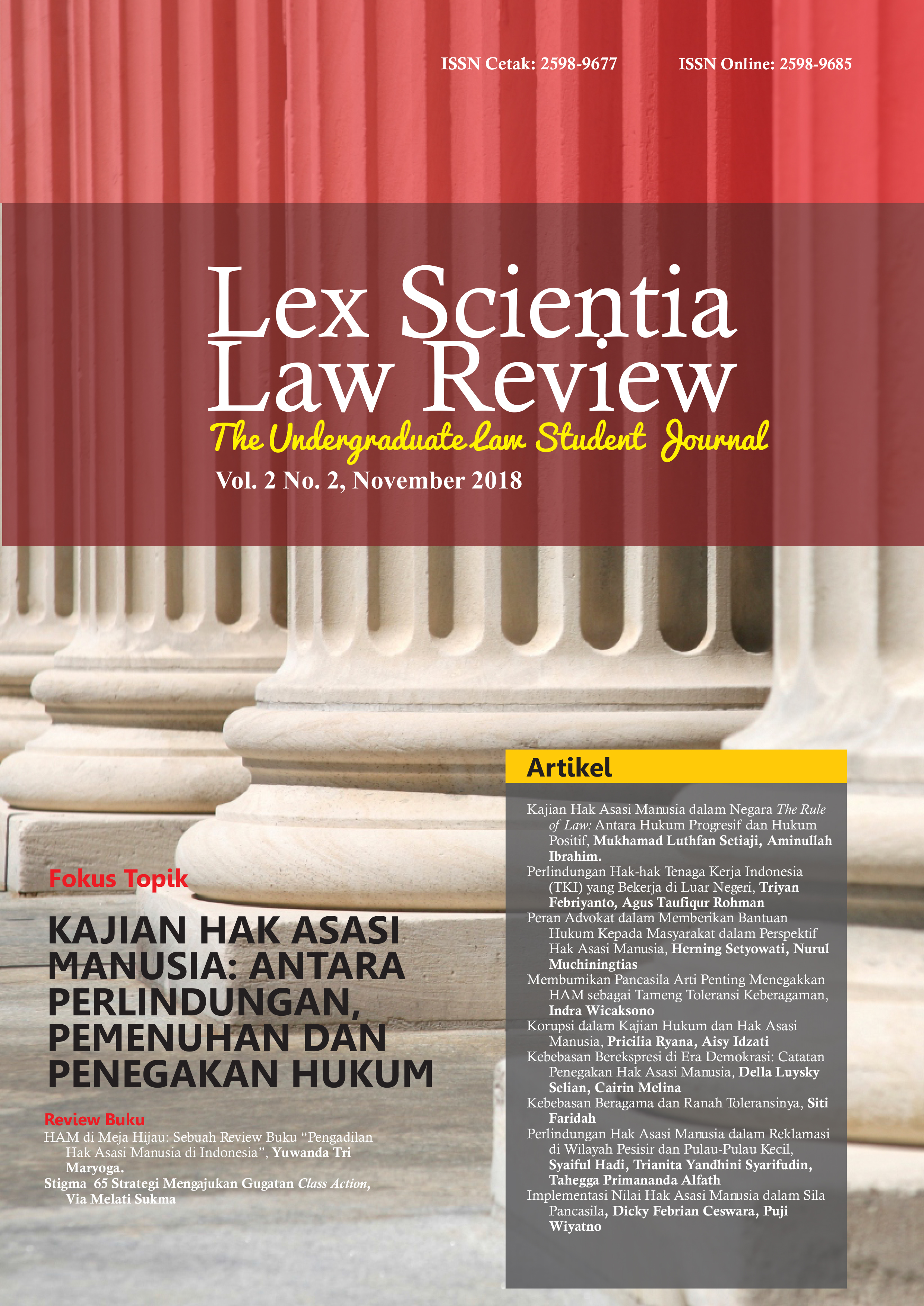Human Rights in Indonesia: Between Protection, Fulfillment, and Law Enforcement
Main Article Content
Abstract
The realm of human rights presents a complex interplay between protection, fulfillment, and law enforcement, particularly evident in the case of Indonesia. This abstract delves into the multifaceted landscape of human rights within the Indonesian context. Indonesia's transition to democracy marked a important juncture for human rights. The government ratified numerous international treaties and established a National Human Rights Commission, reflecting its commitment to protection. However, challenges persist as minority rights, notably those of religious and ethnic groups, face intermittent infringement, revealing gaps between rhetoric and reality. Fulfillment of rights poses another intricate facet. Economic and social rights, essential for human dignity, demand equitable distribution of resources. Indonesia's progress is discernible in poverty reduction and improved healthcare and education. Nevertheless, regional disparities and the indigenous population's marginalization warrant attention to ensure holistic rights fulfillment. Effective law enforcement remains central to the human rights discourse. The nation's counterterrorism efforts have sometimes raised concerns regarding due process and freedom of expression. Additionally, the protection of civil liberties necessitates consistent law enforcement reforms, emphasizing accountability, transparency, and the independence of the judiciary.
Article Details

This work is licensed under a Creative Commons Attribution-NonCommercial-ShareAlike 4.0 International License.
All writings published in this journal are personal views of the authors and do not represent the view of this journal and the author's affiliated institutions. Authors retain the copyrights under this license, see our copyrights notice.
References
Anif, Virdatul, and Galuh Mustika Dewi. “Quo Vadis of Politics of Law of Human Rights Protection Policy in Indonesia”. Lex Scientia Law Review 1, No. 1 (2017): 5-18. https://doi.org/10.15294/lesrev.v1i01.19453.
Arifin, Ridwan. “Revealing the Other Side of Human Rights Issue: How We Look to the Existed Various Problems”. Journal of Indonesian Legal Studies 2, No. 1 (2017):, 79-82. https://doi.org/10.15294/jils.v2i01.16642.
Bruun, Ole, and Michael Jacobsen. Human rights and Asian values: Contesting national identities and cultural representations in Asia. (London: Routledge, 2003).
Hanif, Muhammad Miftakhuddin. “Reviving the Sense of Deterrent Effects To Prisoners Inside Penal Institutions”. Unnes Law Journal 4, No. 2 (2015). https://doi.org/10.15294/ulj.v4i2.38780.
Lubis, Muhammad. “The Relationship of International Human Rights Law With International Humanitarian Law in Situations of International Armed Conflicts”. Journal of Indonesian Legal Studies 1, No. 1 (2017): 13-34. https://doi.org/10.15294/jils.v1i01.16565.
Mcguire, Hannah. "Indonesian Law Reform and the Promotion of Justice: An Analysis of Law Reform in the Post-Soeharto Period." Brawijaya Law Journal 3, No. 1 (2016): 60-78.
Muhtada, Dani. “Human Rights in Indonesia: A Never Ending Topic”. Journal of Indonesian Legal Studies 2, No. 1 (2017): 1-2. https://doi.org/10.15294/jils.v2i01.16720.
Selyawati, Ni Putu, and Maharani Chandra Dewi. “Implementation of Universal Human Rights Values Based on the Universal Declaration of Human Rights in Indonesia”. Lex Scientia Law Review 1, No. 1 (2017): 41-56. https://doi.org/10.15294/lesrev.v1i01.19481.
Towadi, Mellisa. “The Application of Sharia Maqashid on the Protection of the Rights of Minority of Muslim Rohingya in Regional ASEAN (Indonesia-Malaysia)”. Journal of Indonesian Legal Studies 2, No. 1 (2017): 43-54. https://doi.org/10.15294/jils.v2i01.16637.
Wright, Shelley. International human rights, decolonisation and globalisation: Becoming human. (London: Routledge, 2003).
